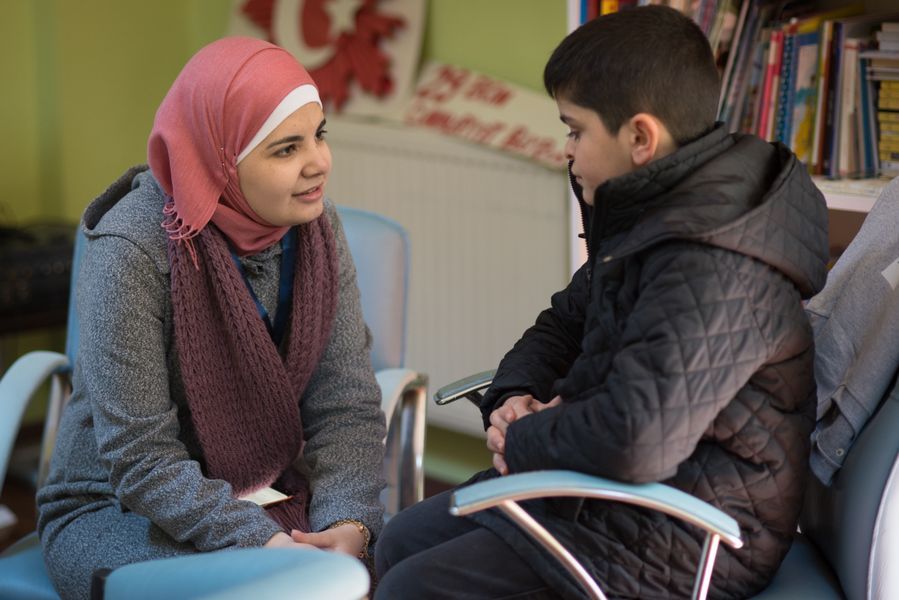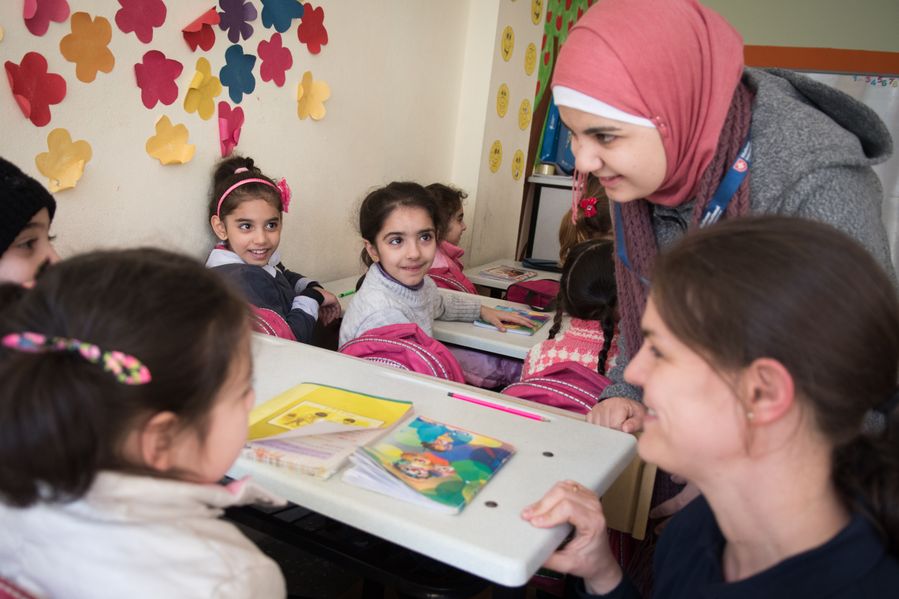Syrian refugee helping fellow citizens in Türkiye
The story of Batoul, psychosocial health worker
When Batoul Abras graduated in Psychology from the University of Aleppo, the Syrian Civil War was already underway. In 2013, she left her job in the country and, with her parents, became herself one of millions of refugees that left Syria fleeing from the violence in their country. She worked in a community center of the International Blue Crescent (IBC) in cooperation with Malteser International providing medical, educational and community facilities to thousands of refugees in order to guarantee them a basic standard of living as the leader of a five-strong Mental Health and Psychosocial Support Team (MHPSS) in Kilis, Türkiye. Today, Batoul works with Malteser International to prepare projects in psycho-social support and trains partner organizations of Malteser International on psychologically related healthcare topics.Her book "Memories Shattered by War" tells the story of ten Syrian refugees in Türkiye and their experiences of the brutal conflict that has sparked the largest humanitarian crisis of our time.
Listening and respect

The extent to which the conflict in Syria affected every section of society can be seen in the variety of patients that Batoul encounters. “I deal with many different cases in different ages and problems,” she says. Basic respect and a ready ear are key to her approach, both rare commodities in the midst of a civil war: “At first when I receive a case I try to bring a bit of calm by talking with them about general matters, not personal ones: a person’s favorite topics or things to do, for example. If the person is injured then I try to figure out the cause of the injury. Above all, I listen to the person, take care of everything that they say, and show them respect and appreciation.”
The lasting effects of trauma
For many of Batoul’s patients, however, lasting calm is not easy to achieve. Many of them have seen or faced terrible violence as well as the threat, and often the reality, of death or serious injury to either themselves or their loved ones. “Their response to these situations includes intense fear or panic and often helplessness. Flashbacks, dreams and nightmares are all attempts to process this experience of severe psychological trauma. Permanent caution, alertness, and often irritability are often the most noticeable effects.” This means that alongside the severe personal consequences of their experience, many refugees face difficulties in social integration, which the help of Batoul and her team, as well as the community-focused environment in Kilis, is essential to overcoming.
Wounded in body and mind

In addition to mental trauma, many of Batoul’s patients are often physically injured. When family members are hurt, the psychological consequences are unpredictable, and often devastating, as relationships are thrown into disarray. “I received one child aged 11, whose feet were amputated due to Bomb blast,” says Batoul. “The child saw his father faint following the blast. Strangely, the boy did not care much what happened to his feet, but he was shocked strongly for his father.” The boy’s grandfather brought him to the field hospital run by Malteser International and the International Blue Crescent in Kilis, but the father remained in Syria. “I gave the boy my best psychological support,” Batoul explains, “but he needed his father. I contacted him and he came to Kilis. The boy was very bad psychologically, until I spoke to them together and explained that they are responsible for what happens in the future. That helped them to accept their situation and improved things a lot.”
A taxing but rewarding job
Coming face to face with some of the worst consequences of violent conflict each day is a job that requires mental toughness, and which can even then take its toll. As a Syrian refugee herself, Batoul has felt the personal effects of the conflict: “I wish for peace, for my country and my family. The war has split us up – some of my brothers and sisters have travelled to other places, and I hope I can see them once more,” she says. For her, however, the positive experiences that her work brings come foremost – “I love my job. A lot of my patients are able to improve significantly with my support, and that is a great motivation for me – to see the smile back on people’s faces, especially the children.”
Conor Heathcote. Last updated: April 2017








